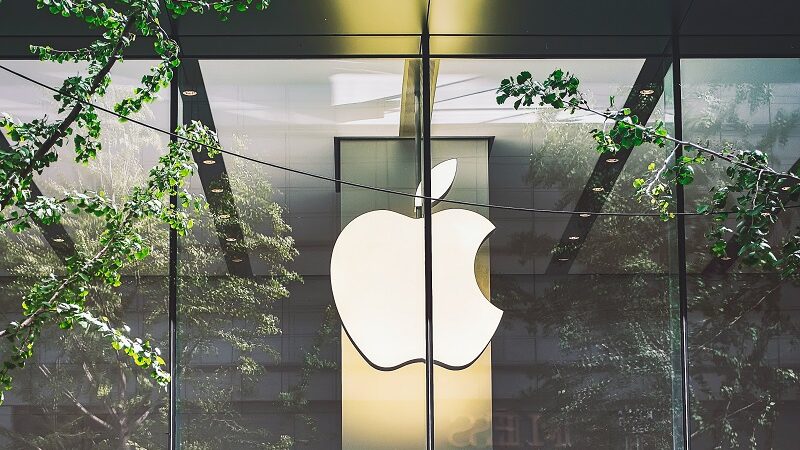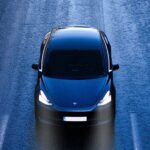It was quiet around the Apple Car for a long time. Now there seems to be some movement in the driverless car project. Can we expect Apple’s self-driving car soon? A status report.
Since the project’s launch in 2014, Apple’s self-driving car efforts have been the subject of rumors, speculation and, above all, personnel changes, but little concrete news.
Now, however, Apple Car has once again turned the personnel wheel and brought some well-known AI and car experts into the team, including Ulrich Kranz (formerly of BMW i3), Tim Cheng (formerly of Drive.ai) and Hans Lee (formerly of Freedom Robotics).
After a long period of dormancy, this shows that Apple Car is on the move again. A good reason to take a closer look at where Apple’s driverless car project currently stands.
Great guesswork around Apple Car
First of all, it has to be said that so far no one really knows exactly what Apple Car is really working on. The personnel changes suggest that the focus has changed again and again. Sometimes it was more on hardware and design, sometimes more on software and then again on artificial intelligence (AI).
For example, the Wall Street Journal speculated in the spring of 2021 that Apple would focus primarily on the development of AI chips for driverless cars. According to the paper, Apple could leverage its expertise in this area to sell software.
Just a software project?
The software-as-a-service model could certainly be lucrative if automakers decide to buy the AI for their driverless models instead of developing it themselves.
Theoretically, Apple could also develop various smart chips for entertainment systems, for assistance systems and much more, and thus sell each carmaker a suitable (subscription) package.
But many doubt that Apple Car will limit itself to software alone. Indeed, there are repeated hints from insider circles that Apple is also working on its own self-driving car.
Apple’s battery plans
The Reuters news agency claims to have learned that Apple is in negotiations with the battery developers CATL and BYD. Apparently, Apple wants to start its own battery production in the U.S., U.S. government spokespersons confirmed to Reuters.
If there are plans for software and batteries, it would stand to reason that Apple is working on a driverless car.
Because Apple “merely” wanting to release batteries and smart software without vehicles would be highly unlikely. Even if that is not completely out of the question, of course.
And then the highly secret “Project Titan” from Apple Car has also been buzzing in the air for years.
Project Titan
This was allegedly originally about converting a VW van with Apple software and electronics into a small series of test vehicles with the help of Volkswagen, as reported by Manager Magazin.
The vehicle was to be electrically powered, feature a steering wheel and driver’s seat, but already be equipped with sensors for autonomous driving.
That was 2018, however, and then Doug Field, who had previously worked on Tesla’s Model 3, joined the Apple Car team and the Titan project was abruptly canceled, leaving Apple’s car efforts very quiet for a long time.
The uncapable car
However, for the past few months, in addition to the personnel changes, new reports have been surfacing claiming that Apple is in negotiations with automakers and suppliers involving technology for autonomous driving.
Manager Magazin also claims to have heard from engineers and insiders that Apple is currently working on an uncrashable car (“a car that will not crash”).
Every new rumor leads to a rise in Apple’s share price, as many people apparently have high hopes for the top technology company. With its know-how, its market power and, of course, a huge budget, people simply believe that Apple can develop the car of the future.
Possibly, this is also exactly the problem of Apple Car.
Too ambitious plans for the iCar?
Tim Cook said in a speech in January 2021 about the Apple Car plans: The benchmark for this would be whether Apple itself would use it. For Apple, those are high standards. It is therefore quite possible that Apple will not settle for just any car prototype.
If there is to be an Apple Car, then the iCar must be as spectacular as the iPhone or the MacBook. It can’t go one step below that. This can at least be interpreted from statements of insiders, who report about the high demands and the high pressure at Apple Car.
However, many also say that Apple has so little to show for it because the company really needs help in developing a high-quality iCar. But the company is not really open to such collaborations, they say, because it doesn’t want to give outsiders insight into its software.
But whether Apple can really do it without help is questionable. At the very least, it will be very difficult in a short-term time frame. A look at the driverless cars that the company is already testing shows that.
Apple’s test fleet
Apple already has a test fleet on the road. However, this is not an iCar, but rather around 70 converted SUVs from Lexus that are performing test drives in California and Arizona.
In 2020, Apple nearly doubled the number of test drives compared to the previous year. The vehicles, equipped with sensors and cameras, completed a total of 18,805 miles (30,264 kilometers).
In the process, drivers had to intervene about every 233 kilometers. That is relatively frequent. Even though this is a positive development compared to the previous year. In 2019, safety personnel behind the wheel had to intervene every 189 kilometers. But these are not peak values either.
Strong competition in autonomous driving
Waymo’s “disengagement figure,” as intervention is officially called, was 47,911 kilometers in 2020, according to the official Disengagement Report of the California Transportation Authority. That means that’s how long Waymo vehicles were autonomously on the road without anyone having to intervene.
In this, you can also see that Apple has another big problem with Apple Car: The competition is already outrunning Apple.
Does Apple Car still have a chance?
Waymo, for example, already has driverless cabs in the U.S., and Tesla undoubtedly dominates the electric car market – impressing with both its design and its smart assistance systems. And these are precisely the areas in which Apple would presumably also like to establish itself.
Apart from Waymo and a few autonomous public transport projects, which, however, operate in protected zones, no one has yet put a truly driverless car on the road.
Also, many companies such as Uber, which many market observers saw far ahead in the driverless car race, have since turned away from their driverless projects.
But if Apple cleverly buys in knowledge, it could well have a chance of putting a competitive vehicle on the road. The timeline would be ambitious, of course. But that certainly won’t stop a company like Apple from trying.










